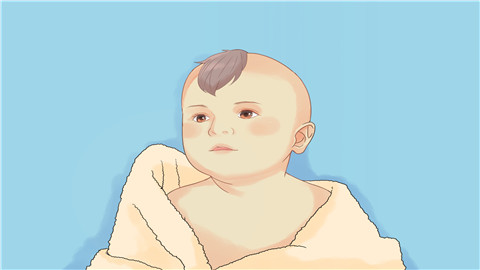How to treat high bilirubin levels in infants to reduce jaundice
Generally, high jaundice in infants may be caused by factors such as immature liver function in newborns, insufficient feeding leading to reduced bowel movements, breast milk jaundice, hemolytic disease of the newborn, or neonatal sepsis. It is recommended to seek timely medical consultation to determine the exact cause, and then improve the condition through feeding adjustments, phototherapy, and other methods under a doctor's guidance. Detailed analysis is as follows:

1. Immature liver function in newborns: The enzyme activity responsible for processing bilirubin in a newborn's liver is low, and the capacity for bilirubin metabolism is weak, making bilirubin accumulation more likely and causing high jaundice. Increase feeding frequency to ensure sufficient daily intake of breast milk or formula, promoting bowel movements and urination to help eliminate bilirubin from the body.
2. Insufficient feeding and reduced bowel movements: Inadequate intake of breast milk or formula may reduce the frequency of infant bowel movements, increasing bilirubin reabsorption in the intestines and worsening jaundice. Feed the infant according to demand; if breast milk is insufficient, supplement with formula under a doctor's guidance, ensuring 3-5 daily bowel movements to reduce bilirubin reabsorption.
3. Breast milk jaundice: Some infants are sensitive to certain components in breast milk, which may lead to prolonged jaundice with high bilirubin levels. Under a doctor's guidance, temporarily stop breastfeeding for 1-3 days and switch to formula feeding. During this time, use a breast pump to maintain milk production. Gradually resume breastfeeding after bilirubin levels decrease.
4. Hemolytic disease of the newborn: Blood type incompatibility between mother and baby can cause hemolysis, rapidly elevating bilirubin levels and resulting in severe jaundice. Blue light phototherapy should be conducted under a doctor's guidance. Additionally, medications such as human albumin injection, immunoglobulin injection, and sodium phenobarbital injection may be used as prescribed to lower bilirubin levels.
5. Neonatal sepsis: Bacterial infections entering the bloodstream can cause sepsis, which affects liver function and disrupts bilirubin metabolism, resulting in high jaundice. Under medical guidance, antibiotics such as ceftriaxone sodium for injection, penicillin sodium for injection, or meropenem for injection should be used to control the infection. Phototherapy should also be administered to promote jaundice resolution.
In daily care, with a doctor's approval, allow the infant's skin to be moderately exposed to gentle sunlight for 10-15 minutes per session, assisting bilirubin breakdown. Closely monitor the infant's mental status, feeding behavior, and jaundice changes, and maintain proper nursing records to help bilirubin levels return to normal.




